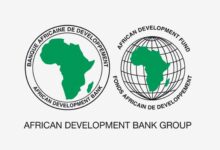 Nigerian banks are struggling to remain profitable under the weight of heavy regulations by the Central Bank of Nigeria, a report by Renaissance Capital (RenCap) said, adding that the country’s lenders are lagging behind their sub-Saharan Africa peers.
Nigerian banks are struggling to remain profitable under the weight of heavy regulations by the Central Bank of Nigeria, a report by Renaissance Capital (RenCap) said, adding that the country’s lenders are lagging behind their sub-Saharan Africa peers.
The RenCap report titled “Nigerian Banks -The Cost of Macro Stability” said that in comparison with other banks on the continent, the capital requirements for Nigerian banks are higher than those of their peers in the continent, but said this was justified given the relative big size of the Nigerian economy.
Nigeria, the most populous nation in Africa, overtook South Africa as the largest economy on the continent in April after it rebased its economy to including emerging sectors such as Nollywood, a vibrant film production sector, and information technology.
The country has 21 banks, most of them in the major cities, serving a population of over 170 million people.
RenCap’s report said that Nigerian banks are required to hold a higher proportion of customer deposits in low yielding liquid assets since the CNB requires a higher liquidity threshold than other regulators on the continent.
“This is because the Nigerian banks not only have to hold more liquid assets than SSA peers by virtue of their higher 30 per cent liquidity ratio, but also have to keep an estimated 31 per cent of deposits in a zero-interest-yielding CRR account at the CBN,” RenCap said.
Cash Reserve Ratio
This, the report says, has contributed largely to the subdued results banks in the oil producing country have reported in the first half of this year. It added that a significantly higher cash reserve ratio on public funds has also constrained most Nigerian banks from improving their earnings.
CBN’s cash reserve requirement (CRR) on public sector funds was raised to 75 per cent in the first quarter of this year, from the 50 per cent it was last year, while than on private sector CRR is currently at 15 per cent.
“The significantly higher system CRR at 31 per cent on our estimates is probably the most punitive of the regulatory requirements,” The RenCap report noted.
“Nigerian banks have significantly less room to generate forex trading income, given their much lower net open position limits,” the report explained.”
RenCap said that the only way for Nigerian banks to return to profitability growth would be if the CBN to loosen its monetary policy stance a bit in the second half of 2015.
“Indeed, we believe 2013 was the year to take the pain, 2014 the year to stabilize and 2015 when we start expecting to see early signs of recovery. Our base case is that any loosening of monetary policy is unlikely until after the elections, that is in the second half of 2015,” It said.
“We believe the biggest earnings kicker the Nigerian banks could have over the next 12 to 24 months is a release in the CRR by the second half of 2015,” the report added.












